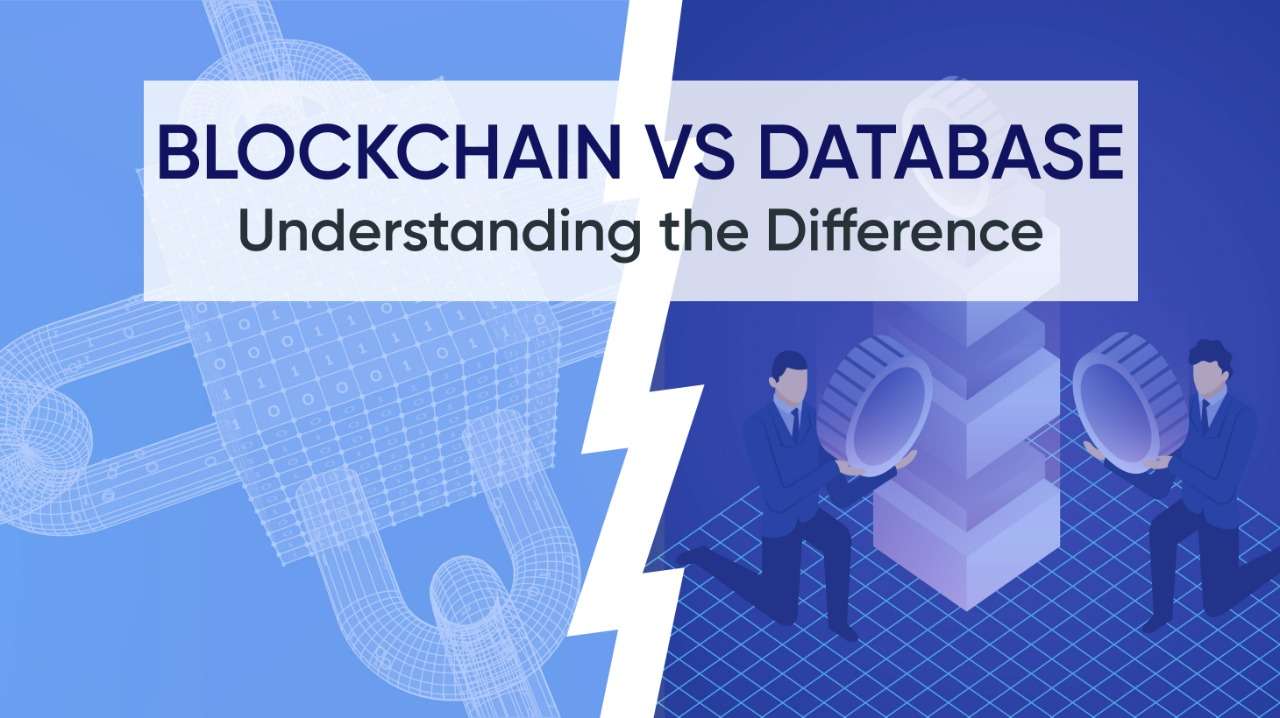Intro
Both Blockchain and databases are two extremely powerful data storage technologies. With the help of these technologies, you can easily store large volumes of data. But which of these data storage technology is better than the other? Which data storage technology offers more benefits to its users? So, to find answers to these questions today we are going to learn about both Blockchain and databases in detail.
Here is everything that you require to know about these two incredible and powerful data storage technologies.
Blockchain
Basically, it is a robust digital ledger technology that stores data in a data structure known as blocks. The technology uses cryptography for connecting and sharing data with all blocks. Every block consists of a cryptographic hash code of the previous block. Mainly, this hash code consists of two details time of the transaction and the details of the transaction. Why is this digital ledger technology so famous? Because the ledger technology is highly reliable. Whenever you add any new data to the ledger it requires verification from all the existing blocks. Besides this, the technology also doesn’t allow users to modify data in the blocks. In other words, it is a highly safe and reliable digital ledger technology. To learn about cryptography in more detail feel free to join our Blockchain courses in India.
Benefits
Following are some of the key benefits of using this robust digital ledger technology:
- With the help of technology financial institutions can reduce the lengthy process of transaction verification.
- The technology allows only the addition of data. However, if you want to modify the data of blocks you cannot do that.
- The technology uses cryptography technology to securely store data in blocks.
- It is a highly reliable digital ledger technology. For instance, whenever you add any new data to the ledger it requires verification from all the existing blocks. This eliminates the probability of fraud and fake transactions.
Databases
A database basically is a digital data-keeping system/central ledger. It requires an administrator that manage everything. For instance, he is responsible for granting rights to users of the central ledger. Besides this, he also takes care of the maintenance process of the central ledger. However, it comes with certain limitations and drawbacks. For instance, by corrupting the data-keeping system you can manipulate the data in the system. In other words, this robust digital data-keeping system is not that safe and secure. This is why many organizations are now using Blockchain technology for storing data instead of using databases.
Benefits
Following are some of the key benefits of using databases for storing data:
- Databases are easy to use and maintain.
- By using a database a company can reduce development time/maintenance need.
- Databases store all the data in one big data file.
- Database administrators can share data in the systems with other users. Besides this, the users can also modify the data in the system.
- These digital data-keeping systems come with robust data backup/recovery tools.
Blockchain vs Databases
Following are some of the major differences between Blockchain and database technology:
- Databases require permission as only users that have the necessary permission can access its data. On the other hand, the latter doesn’t require any permission.
- Databases are faster in comparison to its competitor.
- In comparison to its competitor, databases are less safe and secure.
- Databases come with incredible data backup and recovery tools. On the other hand, the latter does not come with any data backup/recovery tool.
- Databases don’t maintain a history of records/ownership records. On the other hand, the latter maintains history records/ownership records.
- You can add and modify the data in the databases. However, Blockchain technology only allows the addition of data. You cannot modify data if you use it for storing data.
- Databases require administrators for storing and maintain data. On the other hand, the latter does not require any administrator for storing data.
- Databases use tables for storing data. On the other hand, later uses blocks for storing data. To learn about blocks in more detail feel free to join our Blockchain course in Delhi.
- By using Blockchain technology finance institutions can reduce the lengthy process of transaction verification. On the other hand, by using databases finance institutions cannot reduce the lengthy process of transaction verification.
- Databases don’t support the concept of public verifiability. On the other hand, Blockchain supports the concept of public verifiability.
Conclusion
As you can see both data storage technologies have their pros and cons. But overall, Blockchain appears to be a better option than databases. By using it finance institutions can reduce the lengthy process of transaction verification. Besides this, the technology also supports the concept of public verifiability. Apart from this, digital ledger technology is also extremely safe and reliable. In other words, you will not regret using this marvellous technology for storing your data. However, don’t forget that the data storage technology also has certain limitations.










